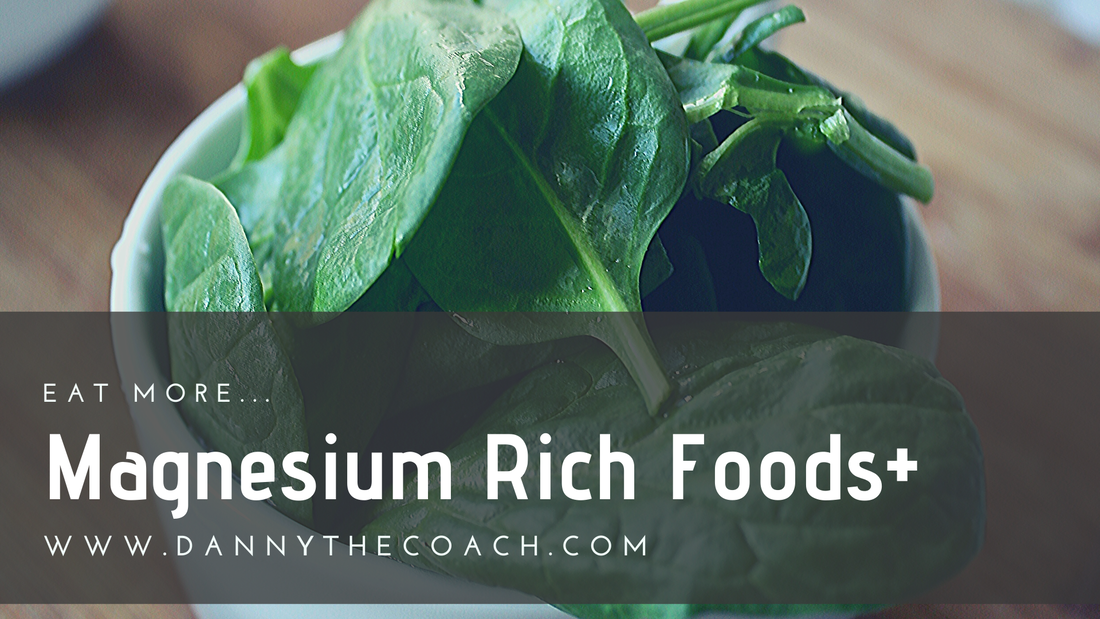|
Why Magnesium Rich Foods Are Essential for Your Health Magnesium rich foods should be used in nearly every meal we consume. Our current society is plagued with magnesium deficiency affecting an estimated 80% of individuals in the United States today. The average standard diet consists of 175 mg/day of magnesium down from an average 500 mg/day representative of diets in the 1900's. Most people are just not consuming enough magnesium rich foods. Dr. Norman Shealy, M.D., Ph.D. is an American neurosurgeon and a pioneer in pain medicine. He says, "Every known illness is associated with a magnesium deficiency," and that, "magnesium is the most critical mineral required for electrical stability of every cell in the body. A magnesium deficiency may be responsible for more diseases than any other nutrient deficiency." The top 12 best food magnesium rich foods outlined below will allow you to replenish your magnesium levels and support your overall vitality and well-being. Essential Role of Magnesium to Health Magnesium plays a key role in intra-cellular health. It manages the electrical gradient within cells so that the nervous system is not easily excited. More than 300 enzymes alone require magnesium to perform their biological roles in tissue and organs. The body relies on optimal magnesium absorption for:
The RDA for magnesium ranges accordingly:
Most natural health experts agree that these levels are considerably lower than they should be and yet close to 80% of our population is not even getting this level. Calcium to Magnesium Ratio Unlike our ancestors whose balance of calcium to magnesium levels were equal, our lifestyle habits today lead to an imbalance in this key electrical gradient. The result is a 10:1 calcium to magnesium ratio. This ratio disrupts the healthy balance of electrolytes within cells making nerves more susceptible to stress and pain perception. Declining magnesium levels in Western societies is dictated by a wide range of variables. Most common are chronic stress and poor dietary habits such as high sugar intake, over consumption of processed foods and too little intake of plant-based nutrients found in the magnesium rich foods. Magnesium Deficiency Symptoms Deficiency can lead to a variety of health disturbances and diseases. Do you have any of the following top symptoms of magnesium deficiency?
A staggering list of widespread diseases is associated with magnesium deficiency. Some of these include Alzheimer's disease, type-2 diabetes, premenstrual syndrome, hypertension, cancer, multiple sclerosis, and chronic immune disorders. Consuming magnesium rich foods can make a world of difference in these conditions. Top Magnesium Rich Foods Consuming magnesium rich foods in your daily diet can help you reduce complications associated with metabolic and inflammatory issues. The biggest things that drain magnesium levels include blood sugar imbalances and chronic stress. If you notice you are under an increased amount of stress or have enjoyed a high carbohydrate meal or dessert, then look to consume more of these magnesium rich foods and consider adding in a good magnesium supplement which I discuss at the bottom of this article. Try to make at least 10 of these 12 magnesium rich foods staple parts of your daily nutrition plan.
Below are details on all of these 12 superfoods.
Source - click here.
0 Comments
Leave a Reply. |
Author
DannyTheCoach Archives
January 2023
Categories
All
|


 RSS Feed
RSS Feed